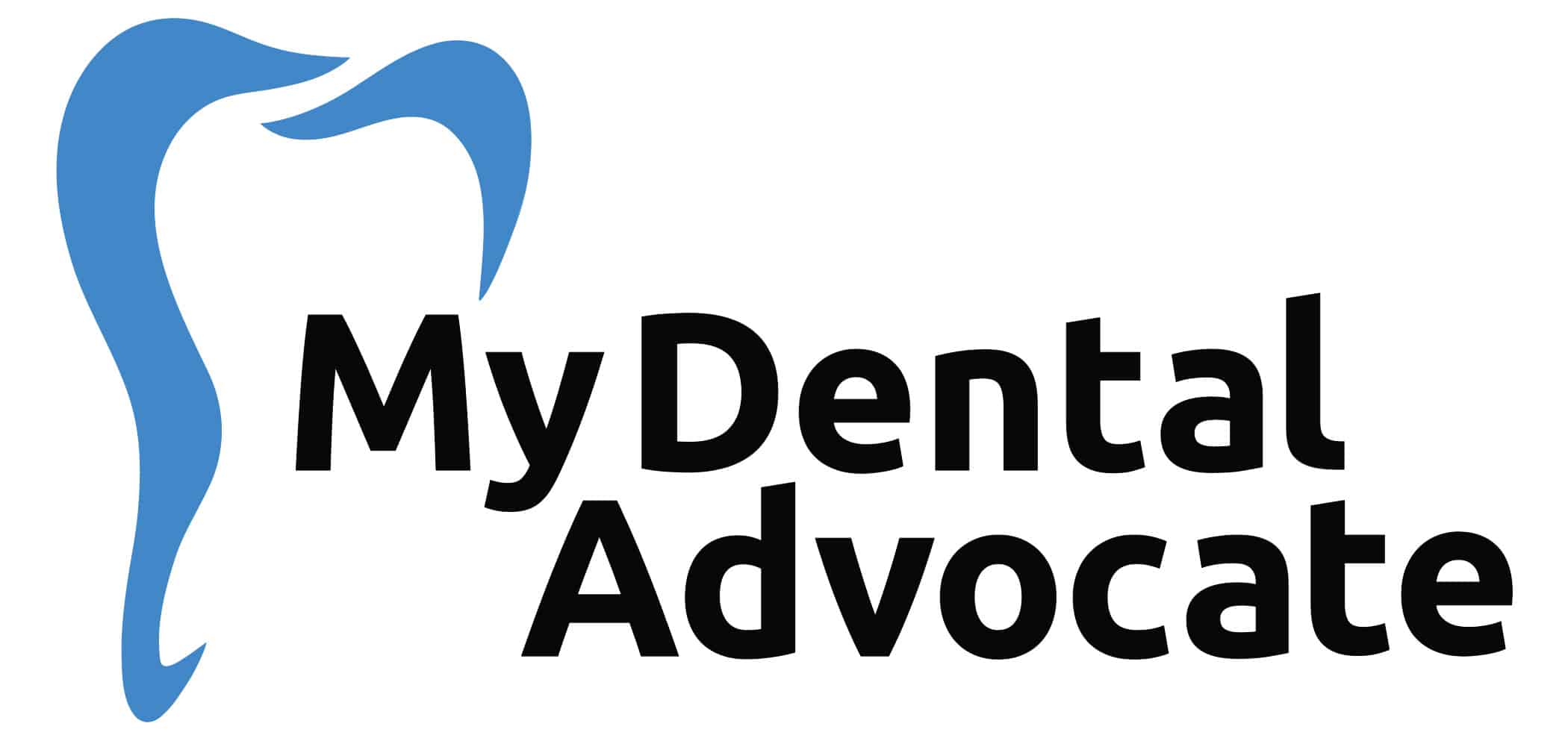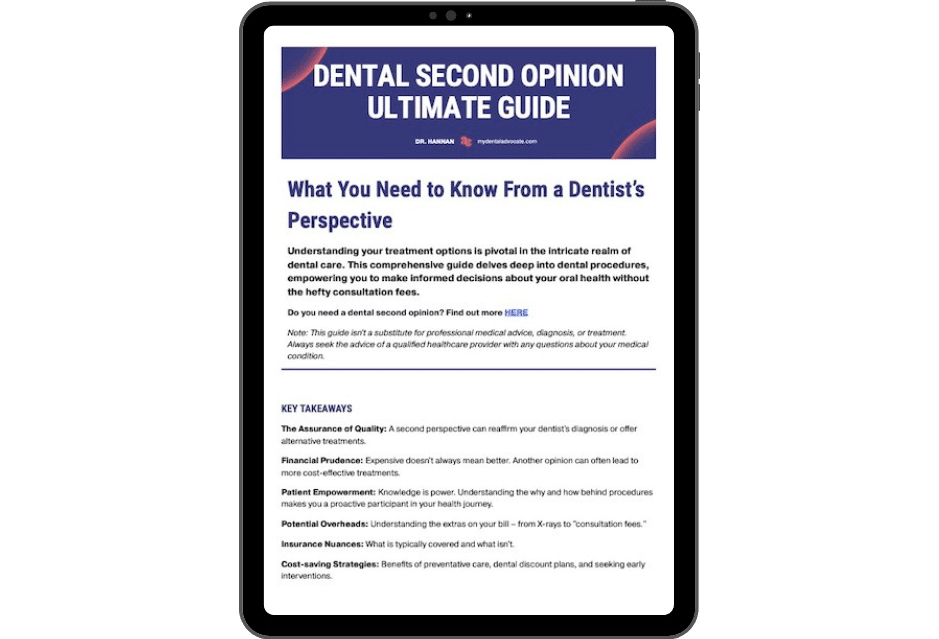Wisdom Tooth Pain (Best Pain Relief)
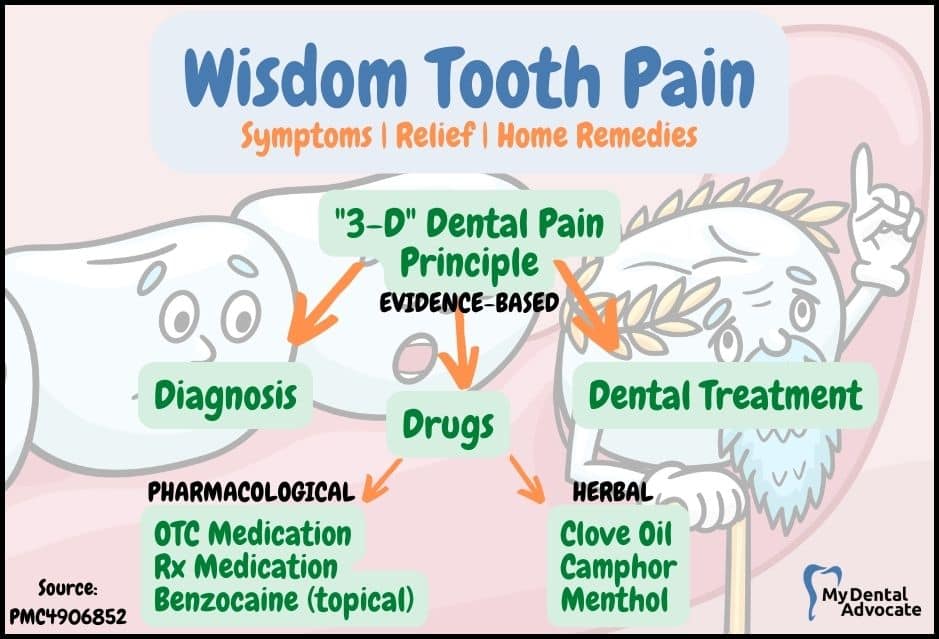
Dealing with wisdom tooth pain can feel overwhelming, especially when it radiates deep into your jaw.
Many patients report this.
The desire for removal is common due to the intensity of discomfort which can hinder daily activities.
Knowing how to maintain oral hygiene and exploring various pain relief options can provide significant comfort.
Need Dental Advice? Ask Dr. Hannan!
Key Takeaways
- Effective pain management for wisdom tooth discomfort is achievable even at home.
- Proper oral hygiene practices, including flossing and brushing, are integral to reducing pain.
- Professional dental advice and resources can guide you through pain relief and post-surgery care.
Wisdom Tooth Pain
When your wisdom teeth erupt, it’s a sign that you’re transitioning into adulthood, usually between 17 and 25 years of age.
Not everyone has the same number—some people might have fewer than four or even more, called supernumerary teeth.
Why Your Wisdom Teeth Hurt
- Impacted Teeth: These culprits grow deep within the bone and can move towards other teeth, causing uncomfortable pressure pain.
- Gum Inflammation: As the tooth breaks through the gum, it can irritate and inflame the surrounding tissue. This can also lead to an awkward and painful bite on the swollen gums, a condition known as pericoronitis.
- Food Trapping: Small holes in the gums create havens for food, leading to accumulated cavity-causing bacteria, which in turn can result in decay if not cleaned properly.
- Gum Disease and Bone Loss: Neglecting these issues can escalate to gum disease or bone loss around your wisdom teeth.
Managing the Pain
- You can often relieve minor discomfort with warm saltwater rinses or over-the-counter pain relievers.
- If the pain becomes too much to handle, surgery to remove your wisdom teeth can be a solution, especially to prevent future oral health problems.
To understand more about the removal process, check out Wisdom Teeth Removal (What’s Involved?)
Common Symptoms
Often, a toothache in the back of the mouth or lower jaw is the first sign of wisdom teeth eruption.
Earaches and headaches may also occur due to insufficient space for the wisdom teeth to erupt. This sensation is called referred pain because the pain triggers a response away from the actual pain source.
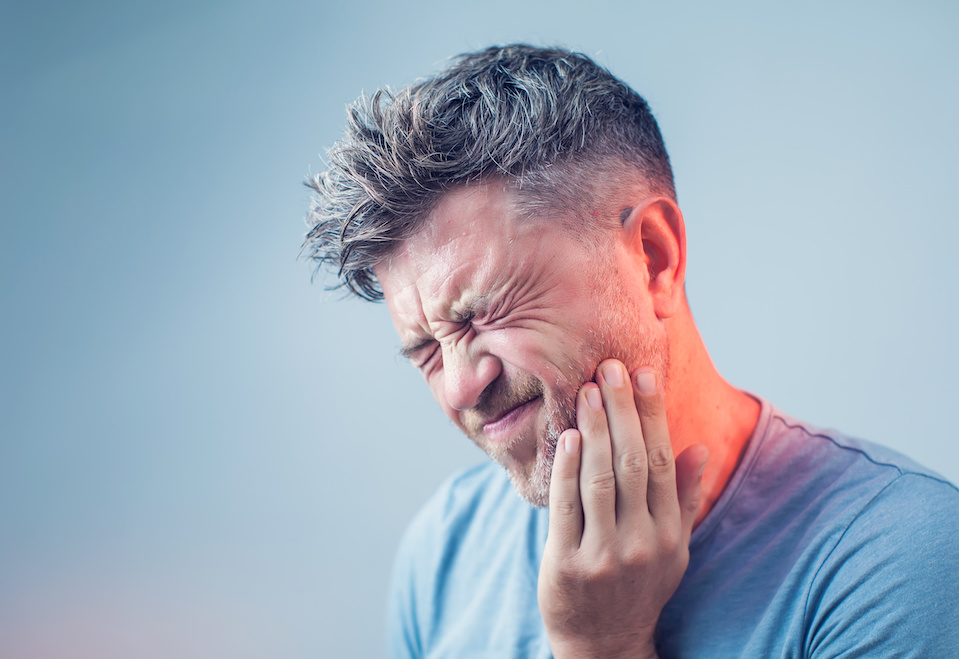
Other Symptoms
- Toothache
- Gum inflammation
- Cheek biting
- Jaw tenderness
- Difficulty opening & closing
- Foot-trap behind 2nd molars
Impacted wisdom teeth are more likely to cause pain because they don’t erupt as planned.
Alternatively, wisdom teeth will erupt without pain symptoms if there is adequate space in the back of the mouth.
Impacted Wisdom Teeth
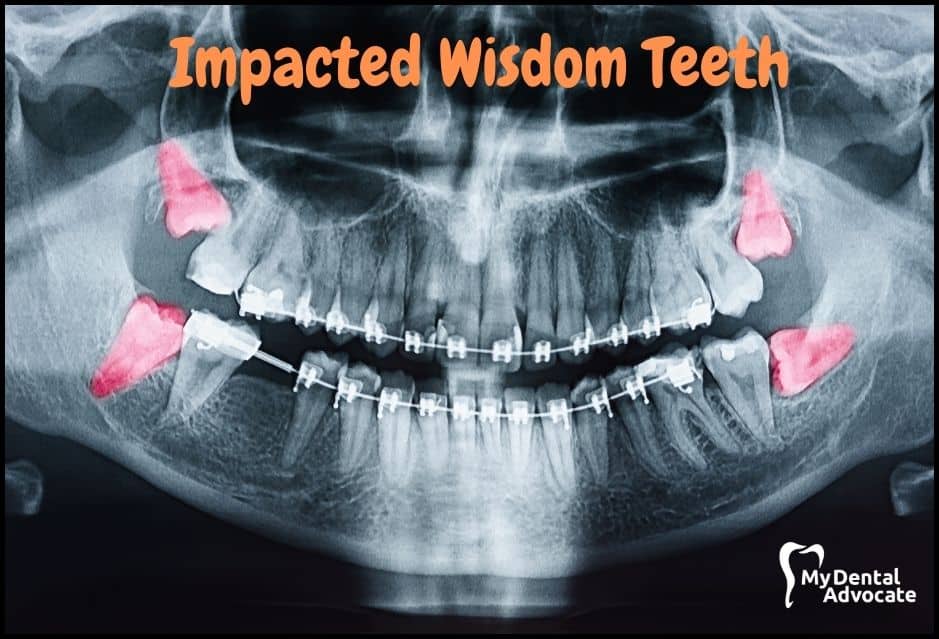
The causes of impacted wisdom teeth are variable; however, the most common reason is due to lack of adequate space in the mouth.
The second molar is the last visible tooth before the wisdom tooth erupts.
Therefore, people with small mouths won’t have enough room for the third molar to erupt, leading to tooth impaction.
Key Factors
- Inadequate Space: Wisdom teeth often struggle for room, especially in smaller jaws or mouths. This lack of space is more common in people with smaller statures.
- Tooth Angulation: If wisdom teeth aren’t upright, they can be angled in ways that block proper eruption. Mesial impaction, where the tooth leans towards the second molar, is a frequent issue.
- Genetics: Genetics play a significant role in tooth impaction. If your family has a history of missing wisdom teeth, you’re more likely to experience this too.
Wisdom Tooth Pain Relief
While you await a dental consultation, over-the-counter options like Motrin (Ibuprofen) or Tylenol can reduce your discomfort and swelling.
Ibuprofen blocks pain response enzymes, providing effective pain relief and anti-inflammatory benefits following a wisdom tooth extraction.
The intensity of dental pain can peak after removing impacted wisdom teeth.
You might find helpful advice in articles like Sedation Options for Wisdom Teeth Removal, which underscore the importance of pain management strategies.
| Medications | Purpose | Note |
|---|---|---|
| Ibuprofen | Alleviates pain and inflammation | Often recommended post-extraction |
| Tylenol | Pain relief | Can be used in tandem with Ibuprofen |
In cases of significant discomfort following a wisdom tooth surgery, ibuprofen has been confirmed to substantially relieve pain.
A study suggests that taking ibuprofen in conjunction with an NSAID like Tylenol before your procedure could increase the efficacy of local anesthesia.
Exploring All-Natural Pain Relief Methods
According to research, the most effective natural pain relief formulation contains three essential oils.
This orally acceptable pain-relief “leave-on” gel provides sustained delivery of pain-relieving herbal extracts to the affected tooth.
Apply clove oil (primarily eugenol), menthol, and camphor directly to the tooth for extended pain relief.
Some patients experiencing dental pain avoid OTC medication choosing to use natural remedies; Home remedies have long-standing historical safety and efficacy. Another reason for a home remedy is to eliminate the time lag between pain initiation and a visit to a dental clinic.
10 Pain Relief Home Remedies
In addition to OTC pain medication, I recommended rinsing with warm salt water 2-3 times/day.
This simple method is one of the most methods for wisdom tooth pain relief. While research suggests there are health benefits with essential oils, they are not FDA-approved. Discuss any questions or concerns with your healthcare provider.
Let’s explore the most effective home remedies.
Best Home Remedies
- Warm Salt Water Rinse: Swish with a mix of 1/2 teaspoon salt in warm water for 30 seconds to kill bacteria and support gum health.
- Benzocaine: 20% benzocaine gel is effective for pain relief, especially for toothaches and mouth sores. It numbs the area, blocking pain.
- Cold Therapy (Ice Pack): Apply a cold pack to reduce pain, swelling, and discomfort. It numbs the area and decreases blood flow.
- Peppermint: Menthol in peppermint extract numbs and cools, reducing pain. Apply the extract to the affected tooth for 2-3 minutes.
- Clove Oil: Eugenol in clove oil relieves pain and inflammation. Apply 3-5 drops on a cotton swab to the sore area. Mix with olive oil to soften the flavor.
- Vanilla Extract: Contains eugenol for pain relief. Apply a few drops on a cotton swab to the painful area, repeating as needed.
- Aloe Vera: Effective against cavity-causing bacteria and reduces inflammation. Apply directly to the affected area for pain relief.
- Tea Tree Oil: Mix with coconut oil and apply to the affected area. It’s antimicrobial and anti-inflammatory but should be diluted.
- Camphor: Offers mild pain relief and a cooling effect. Useful for cavities and sensitivity.
- Capsaicin: Found in chili peppers, it helps with pain and swelling. Apply carefully to the sore area with a cotton swab.
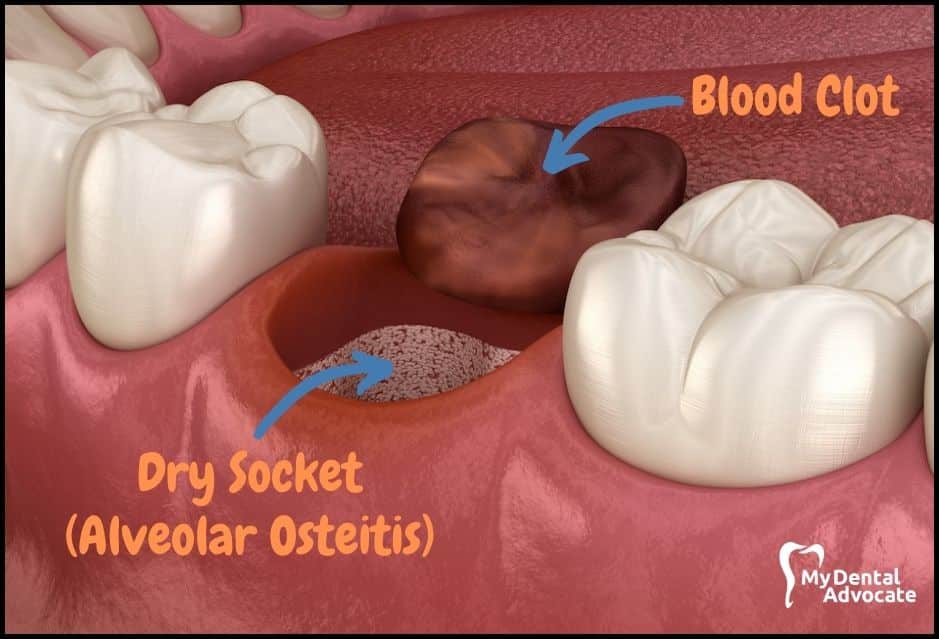
Helpful Tips After Surgery
Wisdom teeth removal is a standard outpatient procedure for patients between the ages of 15 and 25.
Recovery after wisdom teeth removal takes 3-4 days, but symptoms can take 1-2 weeks to subside.
Your oral surgeon will provide detailed post-op instructions, including contact information.
In addition, you must follow the at-home care instructions that your surgeon gives you to prevent complications and to improve healing.
Recommended Reading: How to Sleep After Wisdom Teeth Removal? (BEST Tips)Your mouth is designed for optimal healing and regeneration; however, expect the tooth socket to heal completely in 3-6 months.
Recommendations
- Medication: Begin taking any prescribed medication as directed before the local anesthetic wears off to manage discomfort.
- Rest: Make sure to rest for the first few days post-procedure; your body needs this time to heal.
- Support healing by not engaging in activities that could disturb the extraction site. These activities include sucking on straws, spitting forcefully, smoking, or swishing liquids vigorously. They can lead to the risk of dry socket.
- Cold Compress: For the initial 24-36 hours, use an ice pack to help reduce pain and swelling.
- Heat Therapy: After the first day, you can alternate between cold packs and moist heat to aid the healing process.
- Oral Hygiene: Gently rinse with warm salt water several times a day to keep the area clean.
- Jaw Care: Massaging your jaw muscles can relieve some of the soreness.
- Elevation: Keep your head raised for up to three days after your tooth removal to lessen swelling and discomfort.
- Restful Sleep: Prioritize sleep and reduce physical activity during your recovery phase.
- Hydration: Drink plenty of fluids, like water and electrolyte-rich drinks such as Gatorade, to stay hydrated.
- Nutrition: Maintain a diet of soft foods that provide enough nutrients without causing stress to your mouth.
My Experience & Expertise
In managing wisdom tooth pain, it’s essential to have a reliable set of methods at your disposal until you’re able to see a professional. Here’s what you can do:
- Over-The-Counter Medicines: Safe and effective for temporary pain relief.
- Warm Salt Water Rinse: Helps reduce inflammation and soothe sore gums.
- Essential Oils: Clove oil, for example, is known for its analgesic properties.
Should you seek further guidance, don’t hesitate to explore additional dental insights and tips that could save you from unnecessary procedures and costs. Stay educated and proactive in your dental health journey.
- Find helpful blog posts and product reviews that can aid in dental care.
- For personalized advice, learn how to get started.
Need a second opinion? We can help! Learn more. Knowledge is power when cultivating healthy dental habits. The more informed you are, the better positioned you’ll be to prevent avoidable and potentially costly dental procedures for you and your family. Watch for future blog posts, where we’ll continue sharing important information, product reviews and practical advice!

About the Author
Dr. Matthew Hannan, also known as “Dr. Advocate,” is a board-certified dentist on a mission to provide accurate dental patient education. He attended Baylor University before completing dental school at UT Health San Antonio School of Dentistry. He now lives in Arizona with his beautiful wife and 4 kids. Dr. Hannan believes everyone should access easy-to-read dental resources with relevant, up-to-date dental research and insight to improve their oral health.

Connect with Dr. Hannan!
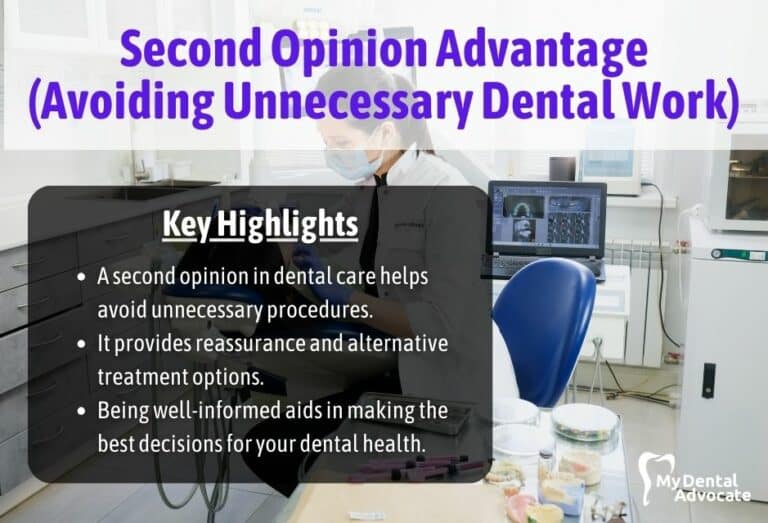
Second Opinion Advantage (Avoiding Unnecessary Dental Work)
Getting a second opinion is a smart move in dental care. It offers fresh perspectives, alternative diagnoses, and can prevent unnecessary procedures. This step is crucial, especially for major or expensive treatments. It clears doubts, protects against excessive treatments, and empowers you with knowledge to make informed decisions about your dental health.
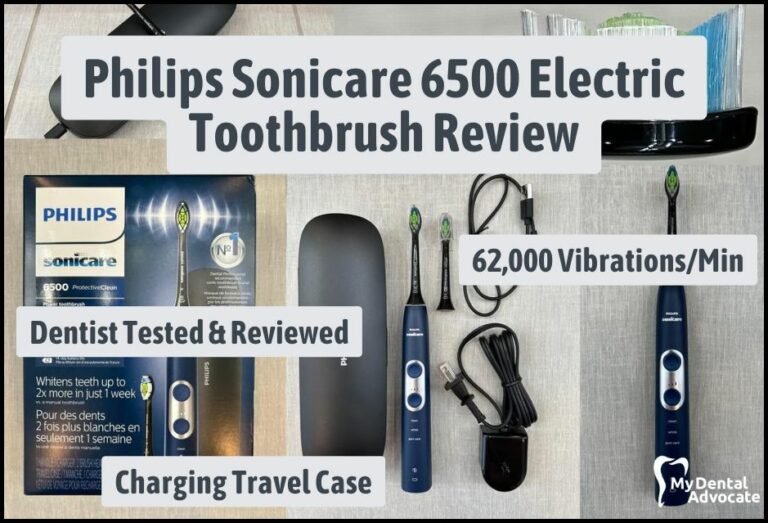
Philips Sonicare 6500 Electric Toothbrush Review 2024
In the realm of dental care, the Philips Sonicare 6500 Electric Toothbrush emerges as a revolutionary player. This cutting-edge device transcends standard cleaning, delivering a superior brushing experience that rewards you with a rejuvenated and sparkling smile.
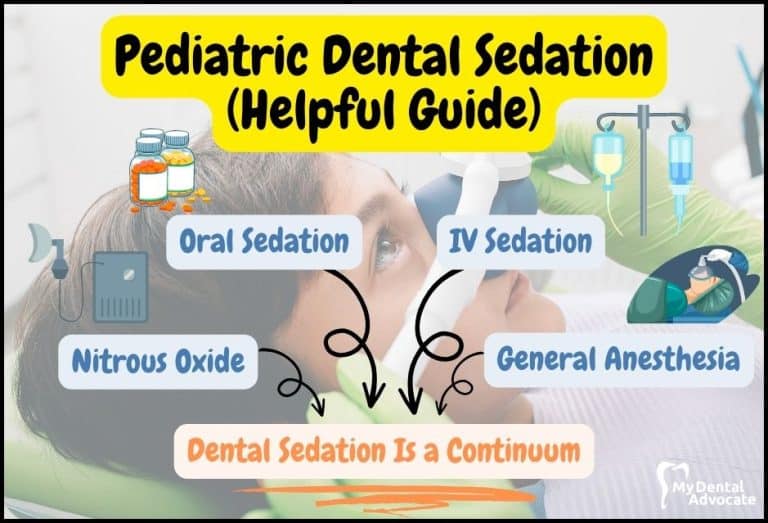
Pediatric Dental Sedation (Helpful Guide)
According to recent studies, 10%–20% of the US population avoid necessary dental care because of dental anxiety. What’s scary is dental anxiety develops in childhood as a result of frightening and painful dental experiences.
Gain Clarity with Our FREE Second Opinion Guide
Receive clear, expert second opinions online within 48 hours. Start today!
Product Reviews
Our 250+ dental product reviews (and counting), curated by an experienced dentist, are the most comprehensive online.
Toothbrush Genie
State-of-the-art chatbot designed to help you discover your perfect toothbrush in just a few simple steps!
Cavity Risk Assessment
Cutting-edge digital tool designed to evaluate your individual cavity risk based on your responses to a series of questions.
Gum Disease Assessment
Discover your gum disease risk with our quick and engaging 6-question assessment!
